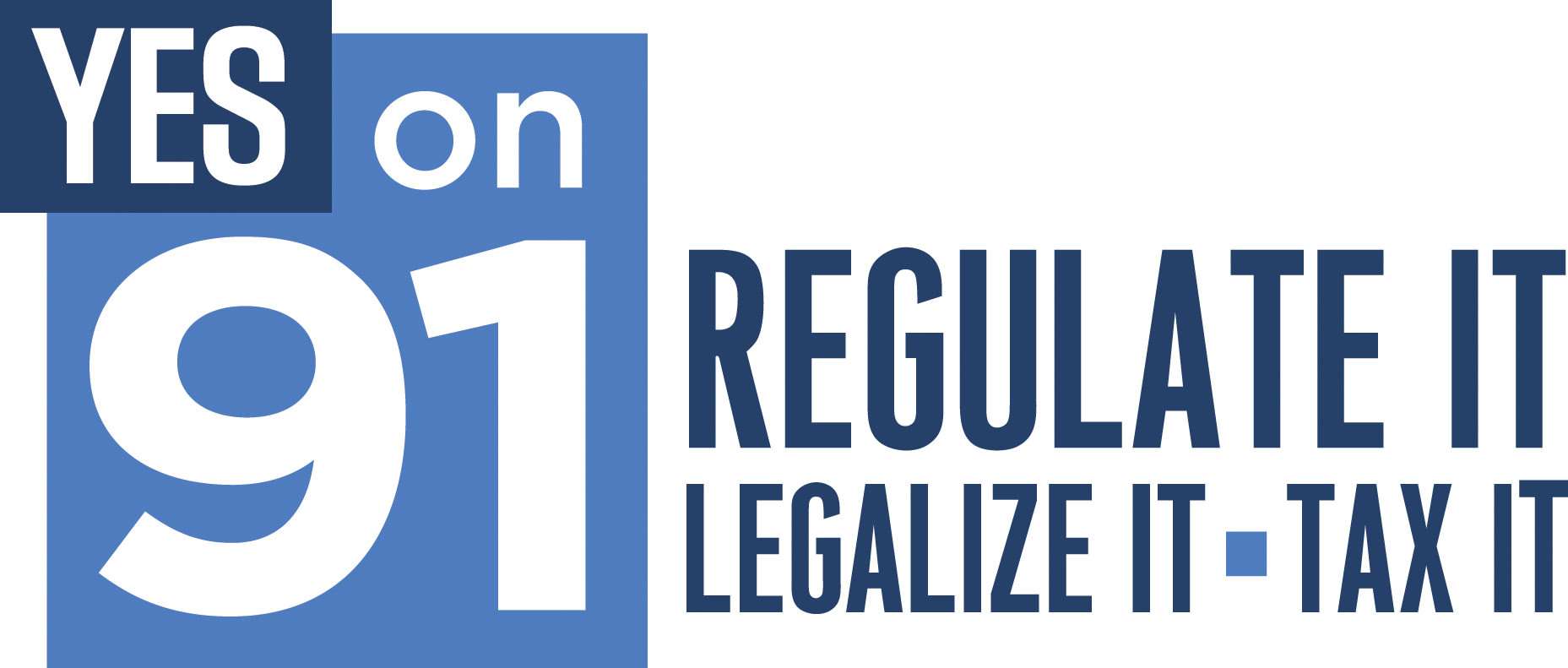Oregon Becomes Third State to Legalize Marijuana

It looks like Oregon is about to become the third state to legalize marijuana. With 55 percent of precincts reporting, the results are 54 percent in favor, 46 percent against. That's a striking turnaround from just two years ago, when 53 percent of voters opposed legalization. Residents of Washington, D.C., also voted to legalize marijuana today, by an overwhelming margin.
Oregon's Measure 91, also known as the Control, Regulation, and Taxation of Marijuana and Industrial Hemp Act, combines elements of Colorado's Amendment 64 and Washington's I-502. Like both of those initiatives, it allows adults 21 or older to purchase and possess up to an ounce of marijuana at a time. Like Amendment 64, it allows nonprofit transfers of up to an ounce. That provision protects people from arrest for sharing pot, which otherwise can be treated as criminal distribution, even if it's limited to passing a joint.
Measure 91's decriminalization of marijuana use does not apply to consumption in any "public place," defined as "a place to which the general public has access." By comparison, Colorado prohibits "consumption that is conducted openly and publicly," while Washington forbids consumption "in view of the general public," both of which seem to cover less ground. Like Colorado (and unlike Washington), Oregon's initiative allows home cultivation, but with stricter limits: up to four plants and eight ounces of usable marijuana per household, compared to six plants and whatever amount they produce per adult in Colorado.
The Oregon initiative takes a different approach to taxation than Colorado or Washington, both of which imposed levies based on a percentage of wholesale and retail prices. Oregon's initiative instead would impose taxes on cannabusinesses based on weight: $35 per ounce of buds and $10 per ounce of leaves, plus $5 per immature plant.
One distinct advantage of the Oregon initiative is that it does not change the standard for driving under the influence of intoxicants (DUII, a.k.a. DUID). Under current law, convicting someone of DUII requires showing that he was "affected to a noticeable degree" by marijuana or another controlled substance, based on the "totality of the circumstances." By contrast, Washington's current rule, established by I-502, says any driver whose blood contains five or more nanograms of THC per milliliter is automatically guilty of DUID, a standard that in effect prohibits driving by many daily consumers, including patients who use marijuana as a medicine, even when they are not actually impaired.
Amendment 64 did not directly change Colorado's DUID law, but after it passed the state legislature approved a law that created a "rebuttable presumption" of DUID at five nanograms, which in practice may have the same impact as Washington's law. Oregon's initiative instead instructs the state Liquor Control Commission, which as in Washington would be charged with regulating the newly legal cannabis industry, to study "the influence of marijuana on the ability of a person to drive a vehicle" and advise the legislature on whether changing Oregon's DUII rule is appropriate.
Update: With 73 percent of precincts reporting, the breakdown remains the same, and A.P. is calling the race.
Editor's Note: As of February 29, 2024, commenting privileges on reason.com posts are limited to Reason Plus subscribers. Past commenters are grandfathered in for a temporary period. Subscribe here to preserve your ability to comment. Your Reason Plus subscription also gives you an ad-free version of reason.com, along with full access to the digital edition and archives of Reason magazine. We request that comments be civil and on-topic. We do not moderate or assume any responsibility for comments, which are owned by the readers who post them. Comments do not represent the views of reason.com or Reason Foundation. We reserve the right to delete any comment and ban commenters for any reason at any time. Comments may only be edited within 5 minutes of posting. Report abuses.
Please to post comments


Ok, I called it first, and so I deserve to be the first here to say, I told you so.
I don't expect Alaska to pass.
But that's all here on H&R.
Florida's med-marijuana required 60%, got around 57%. Still better than anyone running for statewide office.
Legalization just passed in DC too.
I can't see Congress doing shit about it within a 30 day period, especially in a lame duck session, so it sticks.
I can't see Congress doing shit about it within a 30 day period, especially in a lame duck session, so it sticks.
Wait, what? You don't think there are enough uptight assholes *from both sides of the aisle* to squash this immediately?
I want to visit your world...
Not sure how much trouble they will have, but I can't see the feds just sitting idly by while folks smoke weed on the national mall. It will drive the control freaks nuts.
Anyway, it's only going to take a couple more states legalizing, say Arizona and Maine, and the weed prohibition will effectively be over. Just like we have dry counties even today, we will have some states where it will still be illegal even 10 years from now, but really, no one will care. The people in those states will just drive across the border and get their weed and there aren't enough cops to sit on the border and stop it. I lived in a dry county once. Everyone just drove over to the next county and bought their alcohol. I never once ever heard of anyone getting into trouble over it.
Good news for dopers: Measure 91 passes.
Bad News for dopers: the OLCC will run the program.
Double down on that stupid, Obama, double down!, it's the only way to help the dems next round!
Delicious proglodyte tears